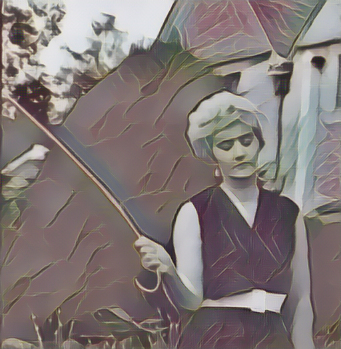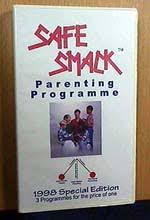There are certain afternoons from one’s youth that remain forever etched in the mind, as if the very sunlight had conspired to preserve them. This was such an afternoon—golden, bright, and brimming with the sort of promise that only a schoolboy can truly appreciate. Mario and I were the closest of companions, though the whims of the local education authority had placed us in different schools and separated us by a single year. Yet, such trivialities were of no consequence when the final bell sounded. I would often find myself at his house, our satchels abandoned, homework scattered across the table, and the rooms ringing with laughter as we devised games and, it must be admitted, a fair amount of mischief.
On this particular day, as I entered Mario’s home, I was greeted by the comforting aroma of freshly brewed coffee and the gentle murmur of adult conversation. My mother sat with Mario’s mother, their heads inclined together in the familiar intimacy of old friends. The living room was awash with sunlight, the patterned wallpaper glowing, and the decorative plates on the wall catching the light in cheerful flashes. I felt a sense of belonging, as though I had entered a second home.
I prided myself on being a diligent pupil, and it was well known that Mario found his lessons rather more challenging. I had never been reprimanded for my academic performance, but on this day, Mario’s mother turned to me with a question that quite unsettled me. “Why do you not assist Mario with his schoolwork?” she inquired, her tone gentle yet insistent. My mother’s eyes, always keen, fixed upon me with a look that suggested she, too, found the question entirely reasonable. I felt a sudden, uncomfortable warmth rise in my cheeks. I hesitated, then spoke the truth: Mario refused my help, too embarrassed to accept it, convinced he was not clever enough.
The mothers exchanged glances, and then, as if by prior arrangement, asked why I had never mentioned this to them. I shifted from foot to foot, feeling the weight of their expectation. “Friends do not betray one another to their mothers,” I replied, my voice scarcely above a whisper. It was a code I held dear, a silent pact between boys.
Yet adults, as I was learning, possess their own codes. The mothers explained, with the gravity of magistrates, that there are occasions when a friend must speak out—when silence might lead to harm, or when a secret could imperil the future. Academic difficulties, they insisted, were not to be concealed out of pride or shame.
My mother, ever perceptive, tilted her head and remarked, “Perhaps you rather enjoy being the clever one, hmm?” Her tone was light, but I recognised the familiar widening of her lap—a silent signal that discipline was imminent. My heart thudded in my chest, and tears pricked my eyes even before she beckoned me forward.
The room seemed to contract, the sunlight suddenly too bright, as I was summoned to my mother’s side. There was a hush, as if the very air was holding its breath. My mother’s lap, which had so often been a place of comfort, now became a stage for justice. I felt the gentle but unyielding grip of Mario’s mother as she took my wrists, her hands cool and steady, ensuring I could not shield myself from what was to come. My own mother’s face was grave, her eyes filled with a mixture of regret and resolve. She spoke softly, “I am proud of you for being a loyal friend, but there are boundaries, and you must learn where they lie.” Her words, though gentle, carried the weight of a lesson that could not be ignored.
I was carefully positioned across her lap, my face pressed into the familiar fabric of her skirt, my hands held fast. The anticipation was almost unbearable. I braced myself, half-expecting the dreaded sting of the belt—Mario’s mother always wore a formidable one, and I had heard tales of its fearsome power. But my mother, in her wisdom, chose only her hand. The first swat landed with a sharp, echoing sound, more startling than painful. It was followed by a flurry of brisk, measured smacks, each one a punctuation mark in the lesson she was determined to impart. The sensation was not agony, but a stinging warmth that grew with each swat, and yet it was the humiliation, the knowledge that I was being punished before my friend and the two mothers, that made my cheeks burn hotter than any slap.
Tears spilled from my eyes, unbidden and unstoppable. I wept not from pain, but from a deep, aching shame. I could not help but glance, through blurred vision, at the thick belt around Mario’s mother’s waist, knowing that it might soon be Mario’s turn to face it. The room was silent save for the rhythmic sound of my mother’s hand and my own quiet sobs. The sunlight, which had seemed so cheerful, now cast long, dramatic shadows across the floor, as if the whole house was watching and waiting.
At last, the spanking ceased. My mother’s hand lingered for a moment, resting gently on my back, and then she gathered me into her arms. She pressed a kiss to my forehead, her lips cool and comforting against my hot skin. “Promise me,” she said, her voice low and earnest, “that you will tell me if Mario ever refuses your help again.” I nodded, though in my heart I knew I could never betray my friend in that way. The fear of another spanking, or worse, the belt, was enough to make me promise anything in that moment.
I was allowed to sit, sniffling and red-eyed, as the mothers prepared for Mario’s return. The air was thick with anticipation, and I could not help but feel a strange kinship with him, knowing what awaited. When Mario finally arrived, his face bright and unsuspecting, the two mothers met him at the door, their expressions grave and purposeful. My mother offered to hold Mario while his own mother administered the punishment, a ritual as old as time in our households, but there was a pause—a moment of mercy.
Perhaps moved by pity, or by the sight of my tear-streaked face, my mother suggested that Mario be spared the belt for once. “Let him have a long hand spanking, as my son has just received,” she said. Mario’s mother agreed, and Mario was gently placed over her lap. This time, my mother did not restrain him, but sat close, allowing Mario to cling to her waist for comfort, as if she were a lifeline in a stormy sea.
Mario’s mother spoke softly, her voice both stern and kind. “You are fortunate, young man, to escape the belt today. But do not think this will be easy. This will be a spanking you will remember.” She raised her hand, and I watched, my heart pounding, as the first swat landed. The sound was sharp, the effect immediate—Mario’s body tensed, and a gasp escaped his lips. The spanking continued, each swat deliberate and unhurried, a steady rhythm that filled the room. There was a strange intimacy to the scene, a mingling of embarrassment and affection, as Mario’s tears began to flow, his pride wounded more than his body.
The spanking was not harsh, but thorough. Mario squirmed and sobbed, his face pressed into his mother’s skirt, his hands clutching at my mother’s waist for reassurance. At one point, my mother gave him a gentle swat as well, urging him to stay in place. The room was filled with the sounds of his crying, the rhythmic pat of his mother’s hand, and the quiet, watchful presence of the adults. The sunlight danced across the floor, illuminating the scene with a golden glow, as if to remind us that even in moments of discipline, there could be warmth and love.
My gaze wandered from Mario’s tear-streaked face to his mother’s strong arms and kind eyes, to the sunlight dappling the floor. There was a strange beauty in the moment, a lesson being learned not just by Mario, but by all of us. The air was thick with the scent of coffee and the faint tang of childhood tears, a mixture both familiar and oddly comforting.
At last, it was over. Mario was gathered into the arms of both mothers, hugged and kissed, his sobs gradually subsiding. He nestled against them, seeking comfort, and I felt a pang of sympathy and relief. The ordeal had passed, leaving behind a sense of quiet understanding, as if an invisible bond had been forged between us all.
Through his tears, Mario promised to ask for my help with his homework in the future. I knew, as did he, that such promises are easily made and easily broken, but in that moment, it felt like a new beginning. The sunlight returned to its cheerful dance, and the room seemed to breathe again, filled with the gentle sounds of forgiveness and hope.
That afternoon, with its sunlight and shadows, its tears and laughter, has remained with me ever since. It is a memory both tender and bittersweet, a lesson in friendship, pride, and the curious ways in which adults endeavour to teach us right from wrong. Even now, when I recall it, I feel the echo of those emotions, as if I am once again that boy in the sunlit room, learning what it means to be a friend.







